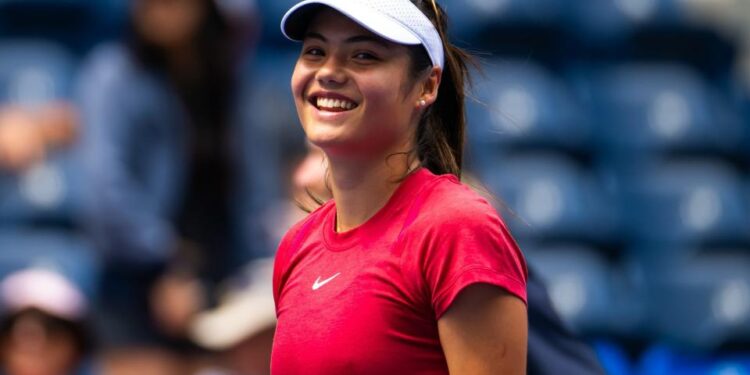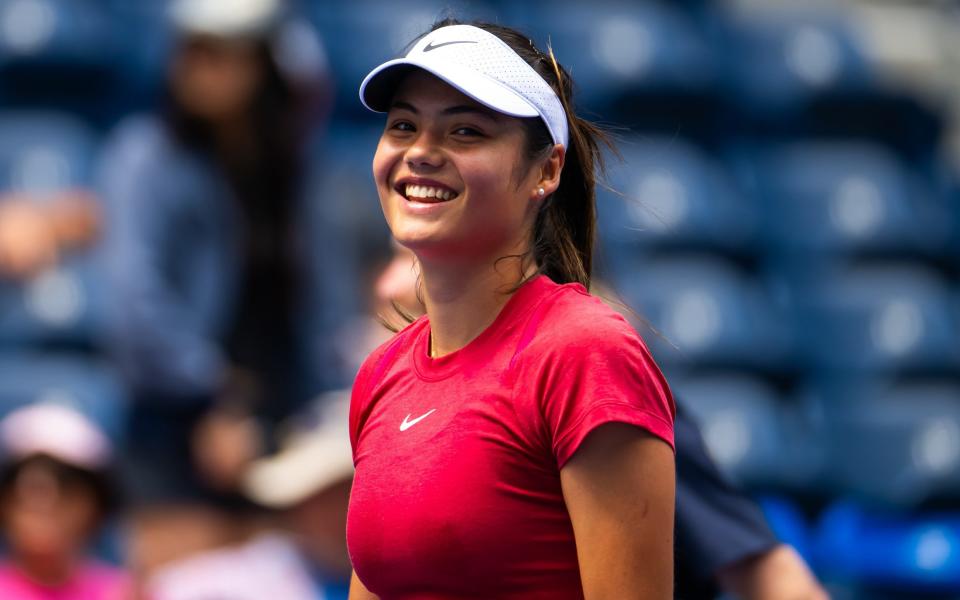
Oh, the irony! During Friday’s pre-US Open interviews, Emma Raducanu described Sir Andy Murray’s stellar career as “old news”.
It was a valid point and yet the comment could not help drawing attention to Raducanu’s own situation. Three years have elapsed since her coming of age at this very event: an unprecedented triumph which, for all its apparently limitless promise, remains a black swan.
So is Raducanu in danger of becoming “old news” too?
Well, her social-media following – 2.6 million on Instagram, which is five times as large as Olympic 800 metres champion Keely Hodgkinson can muster – means that Raducanu need never fear obscurity.
Increasingly, though, she is being filed alongside the likes of Bianca Andreescu, Jelena Ostapenko and Sofia Kenin – the last of whom she is due to face on Tuesday – in the category marked “one-slam wonders”.
Does this bother her?
Not that you’d notice. “I’ve been playing a lot freer in the last month,” Raducanu told Sky Sports last week. “I’ve been expressing myself and I’ve been fighting, there’s been a lot of passion and I’ve been feisty. I just feel a real fire back and a desire. That is me, I’m really tenacious and gritty, and I feel like I’ve got my spark back which is what I’m most pleased about.”
Despite a lack of tangible achievement – Raducanu has failed to win more than three matches at a single tournament since her US Open triumph – her narrative continues to supply enough twists to keep us guessing.
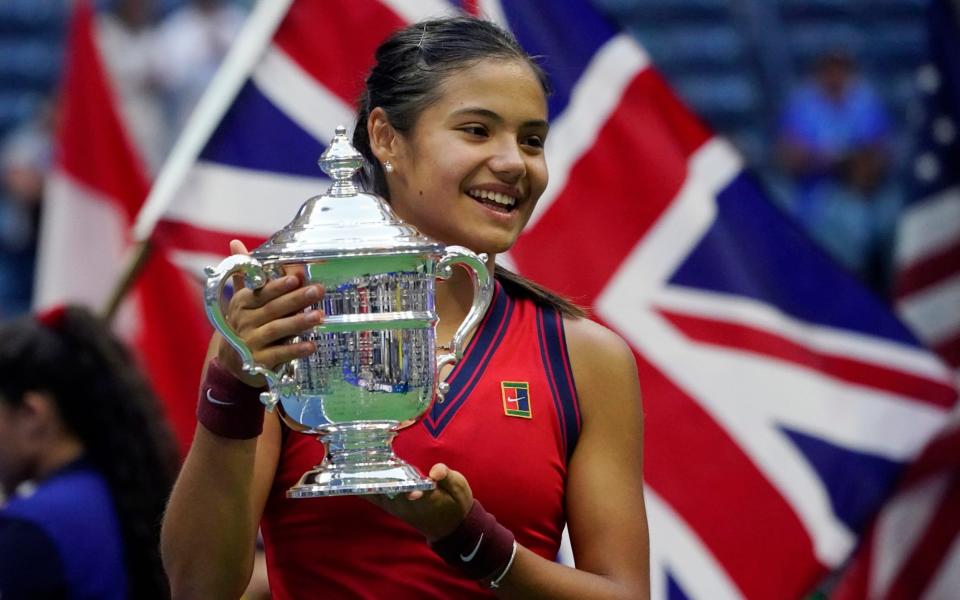

We can identify three different phases over the last three years. The first involved much indecision over coaches, who formed a disorderly queue between the departure of Andrew Richardson in September 2021 and that of Sebastian Sachs in July 2023. (In between, Torben Beltz and Dmitry Tursunov also came and went.)
Then there was the eight-month injury lay-off following double-wrist surgery in May last year, itself perhaps the result of experimenting with various different training methods and even string tensions.
This year, finally, Raducanu’s career has returned to some sort of stability under her childhood coach Nick Cavaday, who began guiding her again in December.
Even now, though, Raducanu remains an occasional visitor to the WTA Tour. She has played only 29 matches this season, while those in the top 10 are mostly up to 50-odd. Her presence at tournaments is as intermittent as that of Serena Williams used to be, only without the conspicuous success.
And it’s not as if this is likely to change. As Raducanu told reporters in New York: “I am not in any big rush to play loads. I would rather target tournaments and be ready to play the tournaments that I am entered in.”
So what is going on here? Is Raducanu just not interested?
Well, it is not as simple as that. She has been working away assiduously with Cavaday on her technique, and together they have introduced visible upgrades in her serve and forehand.
Increasingly, though, it seems as if Raducanu views tennis as an academic exercise that she can crack from a distance, like a hacker breaking through a bank’s firewall. She is much less interested in the brute-force method. This would involve grinding away on the tour until she achieves incremental improvement through sheer repetition.
There is also a sense in which her selective approach maintains a sense of mystique. As she builds up her ranking incrementally – to No71 this week – Raducanu has declined to appear in a single qualifying tournament, even though she was apparently available during the preliminaries at both the French Open and the Cincinnati Masters.
While Raducanu insists that she has nothing against qualifying, it seems plausible that she fears losing before a tournament has begun in earnest, viewing it as bad for her brand. There is another irony here, given that her defining triumph stemmed from a run through US Open qualifying in 2021.
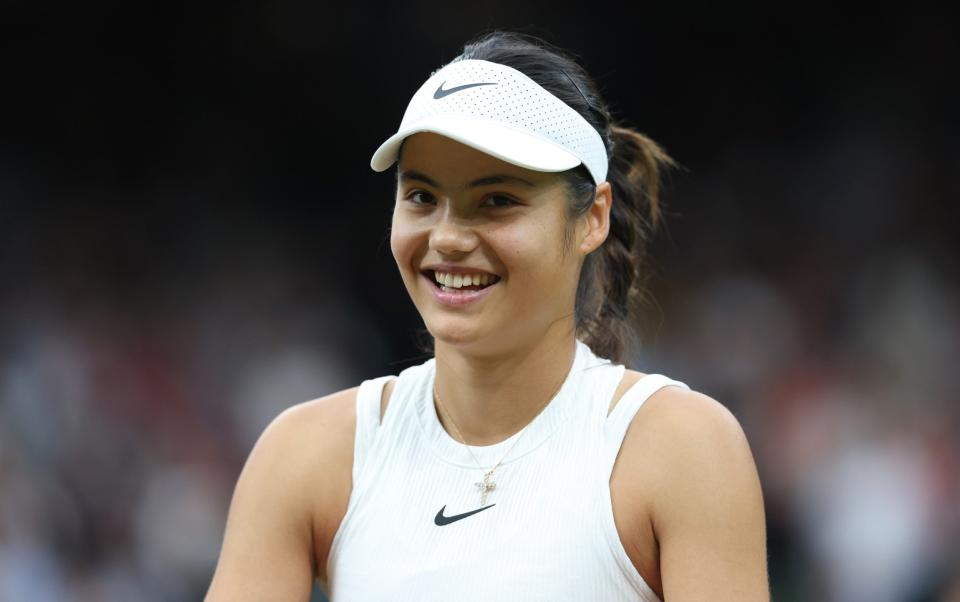

But it is also true that the tennis tour is not a particularly enjoyable experience for most people, especially on the WTA side. This is a lonely and repetitive business. And for Raducanu, already a woman of independent means, there is no need to be continually singing for her supper.
As Raducanu told Sky Sports last week, “The way I like to destress and relax off of the court is that I’ve become quite big into my art. Painting but also taking more interest in going to galleries and looking at exhibitions.
“Then on the musical side I’ve been picking up the piano as well. I find it a very good way to put all my emotions in one place and it’s a great outlet for me because day to day I have to put on a brave face a lot of the time. I think it’s just a great way to release everything.”
How far can Raducanu’s arm’s-length approach take her?
The biggest obstacle lies in her physicality. She is already smaller and lighter than most of the top women, and by declining to build up her physical resilience through week-in, week-out competitive tennis, she only accentuates that difference.
Yes, Raducanu can hone her muscles in the gym at the National Tennis Centre, but any tour player will tell you that there is no substitute for matchplay.
Given a good draw – like the one she took advantage of at Wimbledon – Raducanu is more than capable of deep runs. But fatigue is sure to accumulate, especially if she becomes involved in a couple of three-setters. We saw the signs when she lost her last-16 match on Centre Court to New Zealand qualifier Lulu Sun.
One of the quirks of Raducanu’s US Open win was that she played 10 matches, and won all of them in straight sets. She never needed to go into the trenches, but that was a blessed period, in which she remained in the so-called zone for three full weeks. This had much to do with a state of “beginner’s mind”. Today, there is too much noise to allow for a direct repeat.
With the money she has already made from the game, Raducanu could easily have followed the path of 2014 Wimbledon finalist Eugenie Bouchard and made tennis a sideshow. Admittedly, many of her endorsement deals are up at the end of the year, but she remains a big enough name to renew at least some of the blue-chip sponsors who helped Harbour 6 Ltd – her registered company – record a profit of £9.6 million last year.
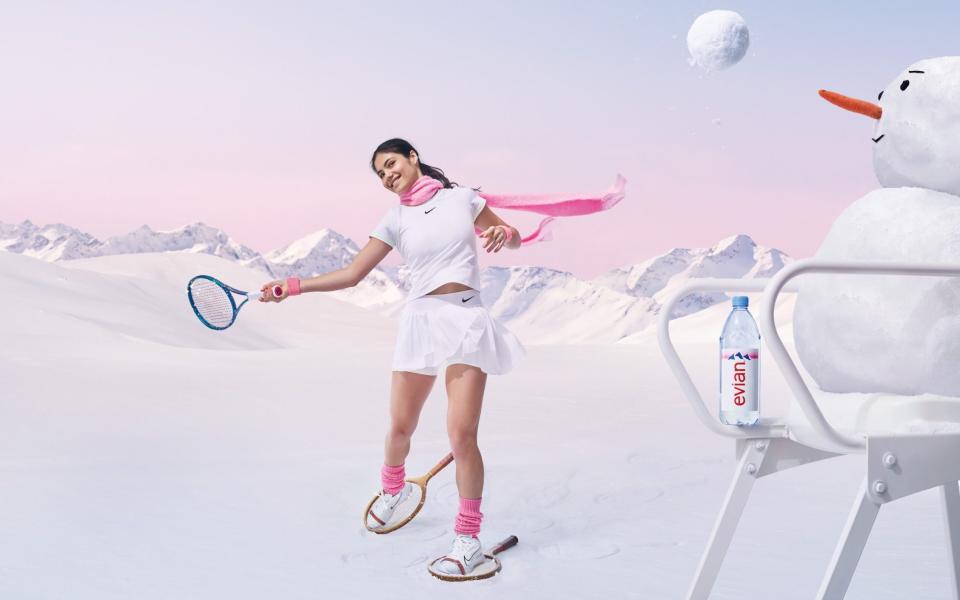

As fans, we should be grateful that she continues to chase further success on the court, and that her spark – as she puts it – has returned. She remains keen to “solve” tennis like an equation.
“From my perspective, people who are successful need to be single-minded, approach tasks in a unique way,” Raducanu told Sky Sports last week. “I’m pretty intellectually curious and I apply that to my trade as well. Off the court, I love to be mentally stimulated and constantly trying to learn and figure things out. I like to learn a new topic or study something.”
Raducanu is certainly following an unconventional path. But then there is no roadmap for a career like hers. Her experience is unique, involving the achievement of global fame before she had even won a match on the regular WTA Tour.
Can she win another major without committing herself fully to the tour?
It seems unlikely. There is a reason why most players observe convention, and one struggles to think of many who have enjoyed consistent success from a different angle.
But as long as Raducanu remains interested, she will remain interesting. And that is to the great benefit of the game as a whole.

